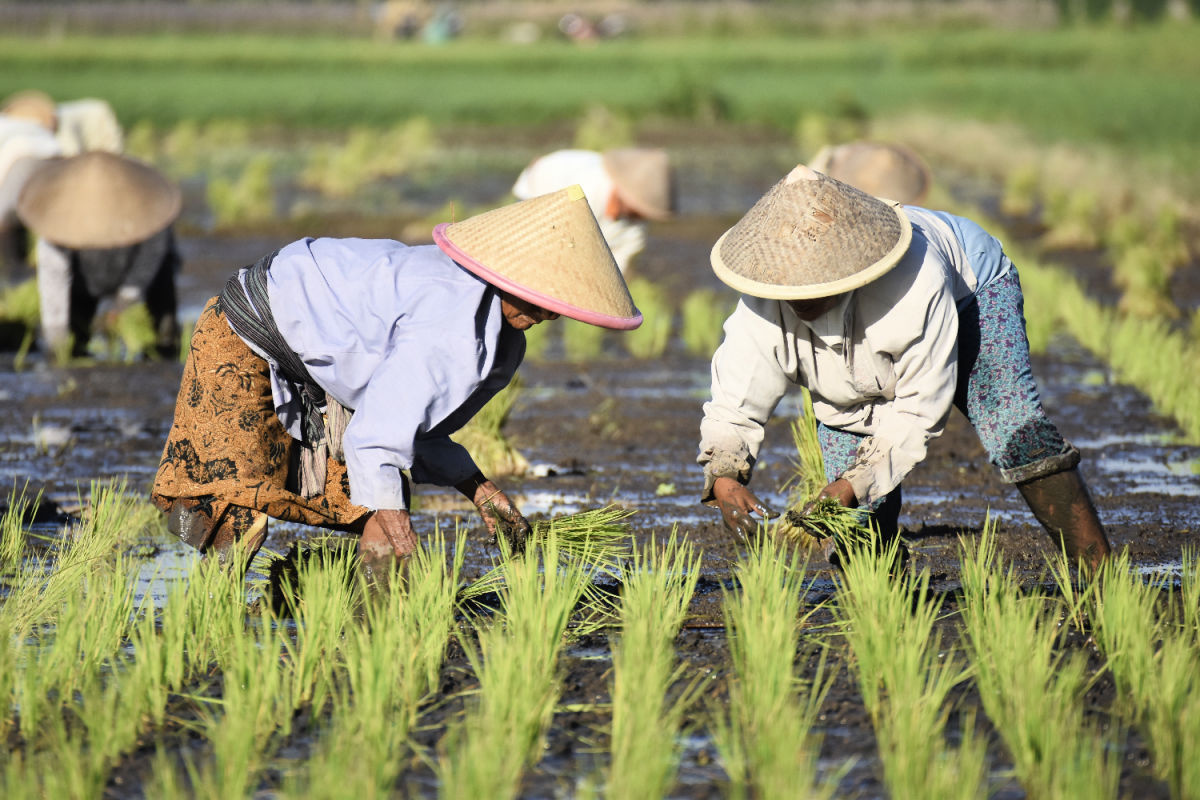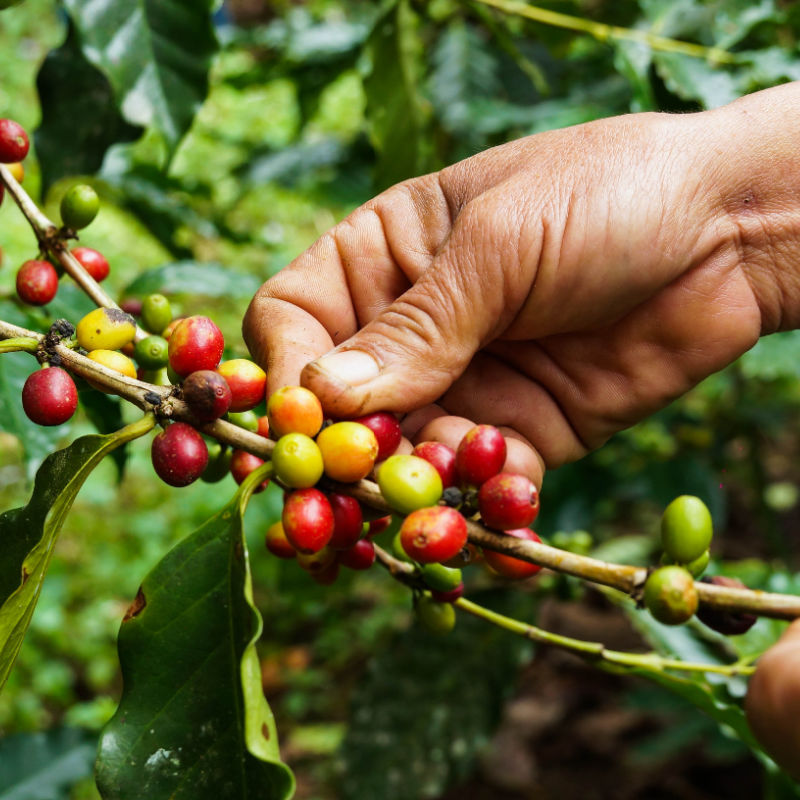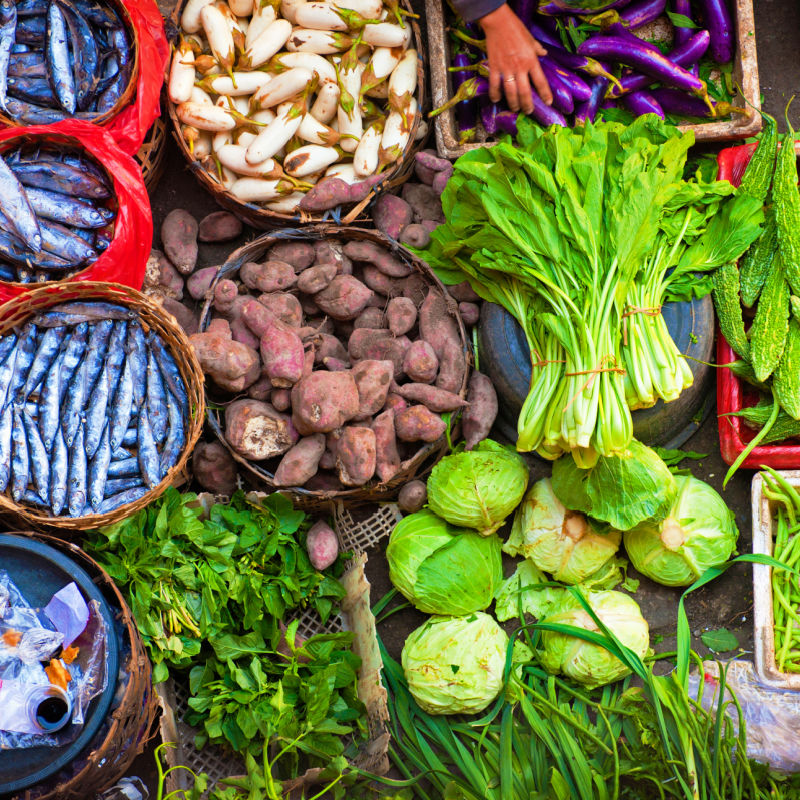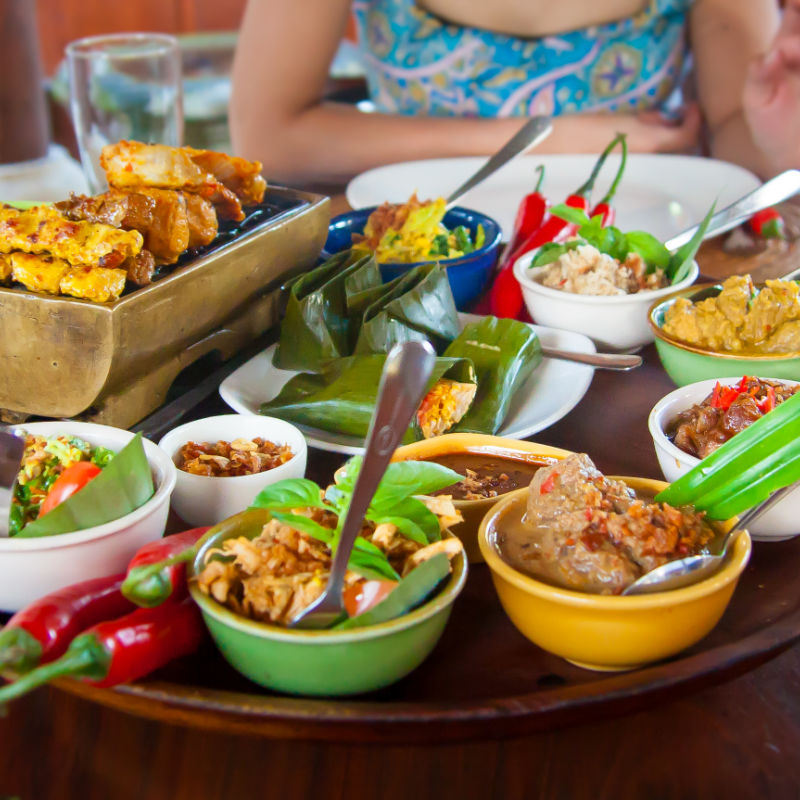In a bid to promote national self-sufficiency, the Indonesian Government will reduce its reliance on food imports.
In 2025, the government will stop the importation of some of Indonesia’s most important commodities in order to achieve national food self-sufficiency by 2029.

In a statement issued from Bandar Lumpung, the Indonesian Minister for Food, Zulkifli Hasan, explained, “Food self-sufficiency has been the government’s top priority program since the initial target achievement in 2029, but this has been advanced to 2027. So everyone must work hard and commit to realizing this.”
He explained that the only way to achieve national food self-sufficiency would be to reduce dependency on food imports, starting in 2025.
Minister Hasan continued, “We decided not to import rice next year so that farmers can plant a lot of rice, and the price in the market is good. Then, the government will not import salt because farmers’ salt production is sufficient. Then not to import corn for animal feed and not to import sugar.”
He explained, “So there are four commodities that we will not import next year. Later, there will be other commodities whose production will be optimized domestically so that it benefits us.”
“So far, we have imported food up to 30 million tons; our lives depend on imports of wheat, sugar, rice, fruits, and coffee, and now it’s time for food self-sufficiency, then water self-sufficiency, energy, and downstream that we are aiming for in the end.”
The Minister pledged his support for the agricultural sector and agreed that the industry has been left to fall behind in many ways.
He promises to work closely with President Prabowo Subianto to develop a series of high-priority programs that will support agricultural development at the provincial, district, and city levels.
He concluded, “All must be a compact team and collaborative because this is the time to build national food self-sufficiency and to leave dependence on food imports.”
Speaking at the press conference, the Minister of Trade, Budi Santoso, shared, “Actually, not all of our food products are imported, but some are produced domestically as well. And there are also exports of agricultural products abroad.”
He spoke of Indonesia’s high-value exports, including Crude Palm Oil, which, between October 2024, had an export value of USD 22.92 billion, arabica and robusta coffee worth USD 1.28 billion, black pepper worth USD 232.79 million and cloves worth USD 222.97 million.

Loganberries, raspberries, blackberries, oranges, papaya, and guava are all mass exported from Indonesia, as well as bananas, tobacco, and coconuts.
Minister Santoso explained, “With a good export trend in the last five years, from 2019 to 2023, this could be a form of Indonesia’s readiness to achieve food self-sufficiency if food products can be managed professionally.”
President Subianto told the media, “Our efforts for food and energy self-sufficiently are the basis of sovereignty. Once we guarantee food self-sufficiently and God willing, in a few years, we will be heading towards energy self-sufficiently, it must be.”

What does this mean for tourists in the short and long term? In the immediate future, nothing much will change in terms of food availability in Bali.
Over time, depending on what food imports and products are stopped, tourists and ex-pats may find it harder to find their favorite brands of basic food products that are grown and produced outside of Indonesia.
There will be an increasing focus on food and dining experiences across Bali that showcase the island’s incredible local produce and culinary heritage.

The ban on specific food imports over the next 4-5 years may also help protect some of Bali’s fast-disappearing rice paddies, food forests, and agricultural landscapes.
As Indonesia will require more fertile land to produce more food to support its population of over 270 million people, legislation may be introduced that will make it harder for developers to construct properties on viable agricultural landscapes.
Remove All Ads & Unlock All Articles… Sign up for The Bali Sun Premium

Plan Your Bali Holiday:
Book The Best English Speaking Drivers For Airport Transfers & Tours
Choose From Thousands of Bali Hotels, Resorts, and Hostels with Free Cancellation On Most Properties
Book Cheap Flights To Bali
Don’t Forget Travel Insurance That Covers Medical Expenses In Bali
For the latest Bali News & Debate Join our Facebook Community
SUBSCRIBE TO NEW POSTS
Enter your email address to subscribe to The Bali Sun’s latest breaking news, straight to your inbox.
Discover more from The Bali Sun
Subscribe to get the latest posts sent to your email.

Exp
Wednesday 8th of January 2025
I always buy quality rice from Korea or Japan. I guess the starch rich rice used at sushi restaurants is all imported as well.
I'm not looking forward to sushi made using low quality local rice. That will be a real mess. I'm quite sure most sushi places will close shop.
Wayan
Monday 6th of January 2025
Great news! Reduce dependency on other countries. If we can make it here, keep it here. Indonesia first!
Michael
Monday 6th of January 2025
They also said they were going to scrap the visa on arrival (VoA) back in November of 2023.
It's all just bull shit man.
Bulelengar
Monday 6th of January 2025
Bali iz completely lost. This article is so far fetched it hurts. Just drive around the island. Confusion for miles. 9 kabupatens with 9 different programs all being run by 9 equally inrxperienced Bupatis? Who is a Bupati? Hi IQ guy? No. He is a nobody. An average Joe with a lot of dough. And a f ing massive Ego. The island is overbuilt and poorly designed and dirty and broken. All the coffee in all the one million coffee shops is off island. Balinese rice is substandard and so is the Governor. Imagine Bali in 10 more years of neglected infrastructure? Love Bali. Hate those dim poluticians and Beaurocrats. Lost
Todd
Sunday 5th of January 2025
Sounds like this will lead to more massive deforestation to me.